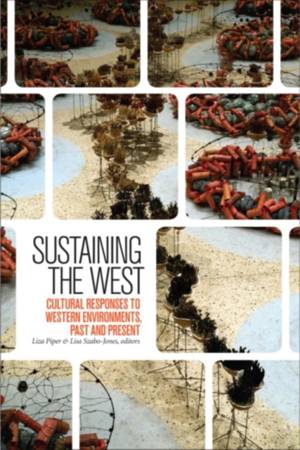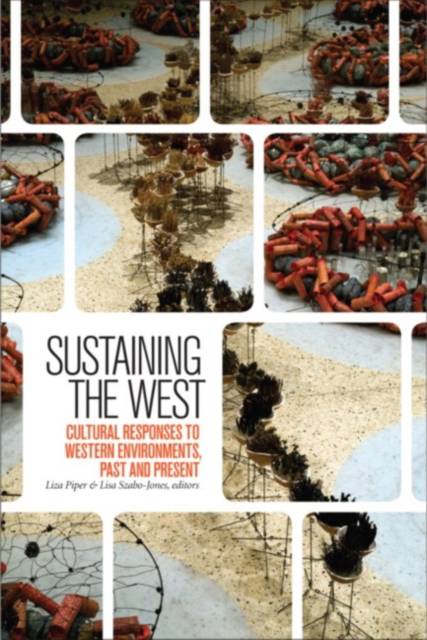
- Afhalen na 1 uur in een winkel met voorraad
- Gratis thuislevering in België vanaf € 30
- Ruim aanbod met 7 miljoen producten
- Afhalen na 1 uur in een winkel met voorraad
- Gratis thuislevering in België vanaf € 30
- Ruim aanbod met 7 miljoen producten
Zoeken
Sustaining the West
Cultural Responses to Canadian Environments
€ 69,95
+ 139 punten
Omschrijving
Western Canada's natural environment faces intensifying threats from industrialization in agriculture and resource development, social and cultural complicity in these destructive practices, and most recently the negative effects of global climate change. The complex nature of the problems being addressed calls for productive interdisciplinary solutions. In this book, arts and humanities scholars and literary and visual artists tackle these pressing environmental issues in provocative and transformative ways. Their commitment to environmental causes emerges through the fields of environmental history, environmental and ecocriticism, ecofeminism, ecoart, ecopoetry, and environmental journalism. This indispensable and timely resource constitutes a sustained cross-pollinating conversation across the environmental humanities about forms of representation and activism that enable ecological knowledge and ethical action on behalf of Western Canadian environments, yet have global reach. Among the developments in the contributors' construction of environmental knowledge are a focus on the power of sentiment in linking people to the fate of nature, and the need to decolonize social and environmental relations and assumptions in the West.
Specificaties
Betrokkenen
- Uitgeverij:
Inhoud
- Aantal bladzijden:
- 365
- Taal:
- Engels
- Reeks:
- Reeksnummer:
- nr. 11
Eigenschappen
- Productcode (EAN):
- 9781554589234
- Verschijningsdatum:
- 26/03/2015
- Uitvoering:
- Paperback
- Formaat:
- Trade paperback (VS)
- Afmetingen:
- 150 mm x 226 mm
- Gewicht:
- 589 g

Alleen bij Standaard Boekhandel
+ 139 punten op je klantenkaart van Standaard Boekhandel
Beoordelingen
We publiceren alleen reviews die voldoen aan de voorwaarden voor reviews. Bekijk onze voorwaarden voor reviews.










